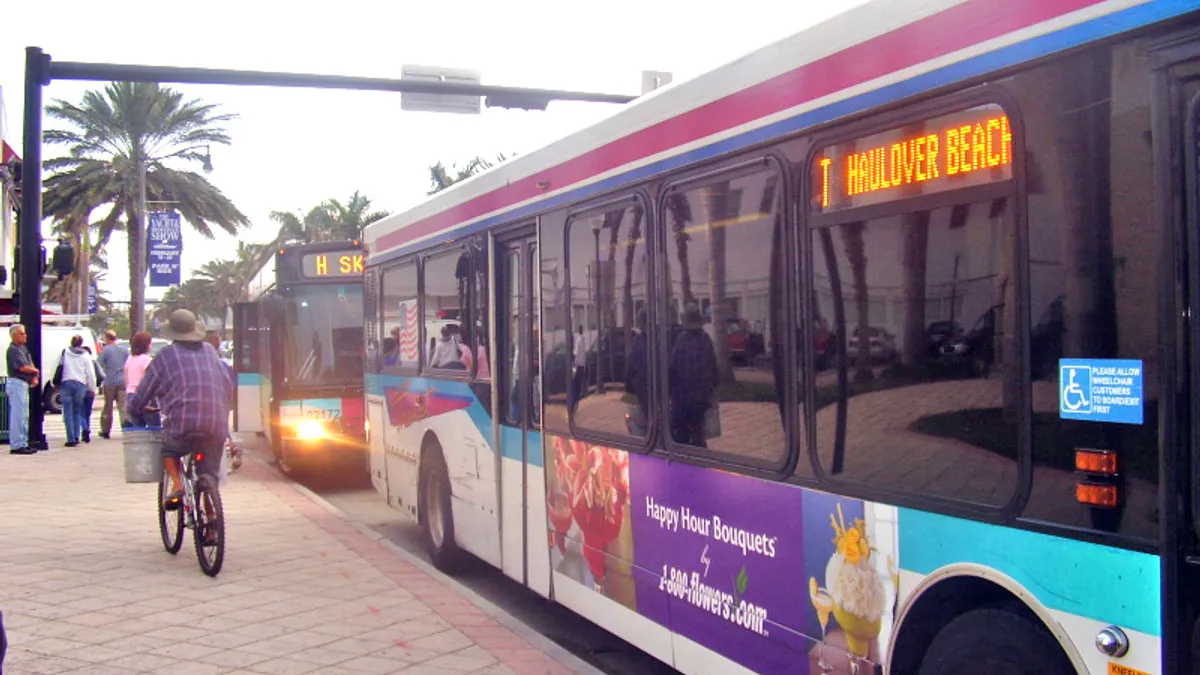Dive Brief:
- A 10-month old vendor contract with Civiq to install interactive digital kiosks at bus stops in Miami-Dade County, FL is currently in jeopardy, according to the Miami Herald. The kiosks provide touch-screen information about the transit system, Wi-Fi for a 200-foot radius and the ability for users to snap a selfie that gets sent to them by email.
- Outfront Media, which builds the county's bus shelters, threatened to abandoned its contract with the county if Civiq is allowed to proceed with installing the kiosks at bus stops.
- The problem comes down to advertising competition. Outfront Media has a near monopoly on advertising throughout the transit system, and Civiq's interactive kiosks would also display ads.
Dive Insight:
Only about one-third of Miami-Dade County's 3,000 bus stops outside the city of Miami have a shelter, which makes transit a tougher sell for riders forced to wait in South Florida's hot sun or near-daily afternoon rain.
The county has opened the bidding process to Outfront Media and other companies for building about 1,000 new shelters. But Outfront Media has threatened to pull out of its existing bus shelter contract because of the advertising competition from the Civiq kiosks. Outfront Media also threatened to stop maintaining the bus shelters if the kiosks are installed; the county owns its bus shelters but Outfront Media repairs lights, empties the trash and cleans up graffiti.
Civiq already has been having difficulty with the interactive kiosk contract that it won in January. The deal required it to name 150 kiosk locations and install Wi-Fi equipment in 10 county buses by now, but that hasn't happened. The county warned Civiq at the end of September that it needed to take immediate action or it might lose the contract.
Miami-Dade is losing out in the companies' battle over advertising. The kiosks are an attempt to make Miami-Dade a smart community; they would have cameras and sensors that could monitor conditions pertaining to traffic, crime and pollution. If the conflict isn't resolved on its own, the county may have to abandon its digital innovation goals to ensure that bus riders are protected from the elements. Plus, if citizens aren't protected, Miami-Dade stands to see further transit ridership losses at a time when it's already experiencing a 10% drop and is working to make cuts throughout the system.
But transit users are the big losers no matter the outcome. They have to give up either the promise of Wi-Fi and other digital kiosk features or physical protection from the beating sun and rain — all because of turmoil over advertising, which most people report not really enjoying, anyway.












